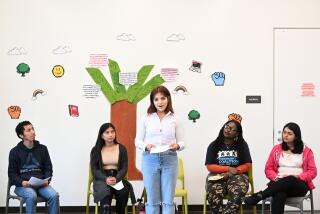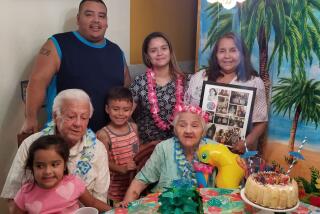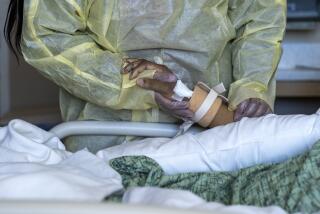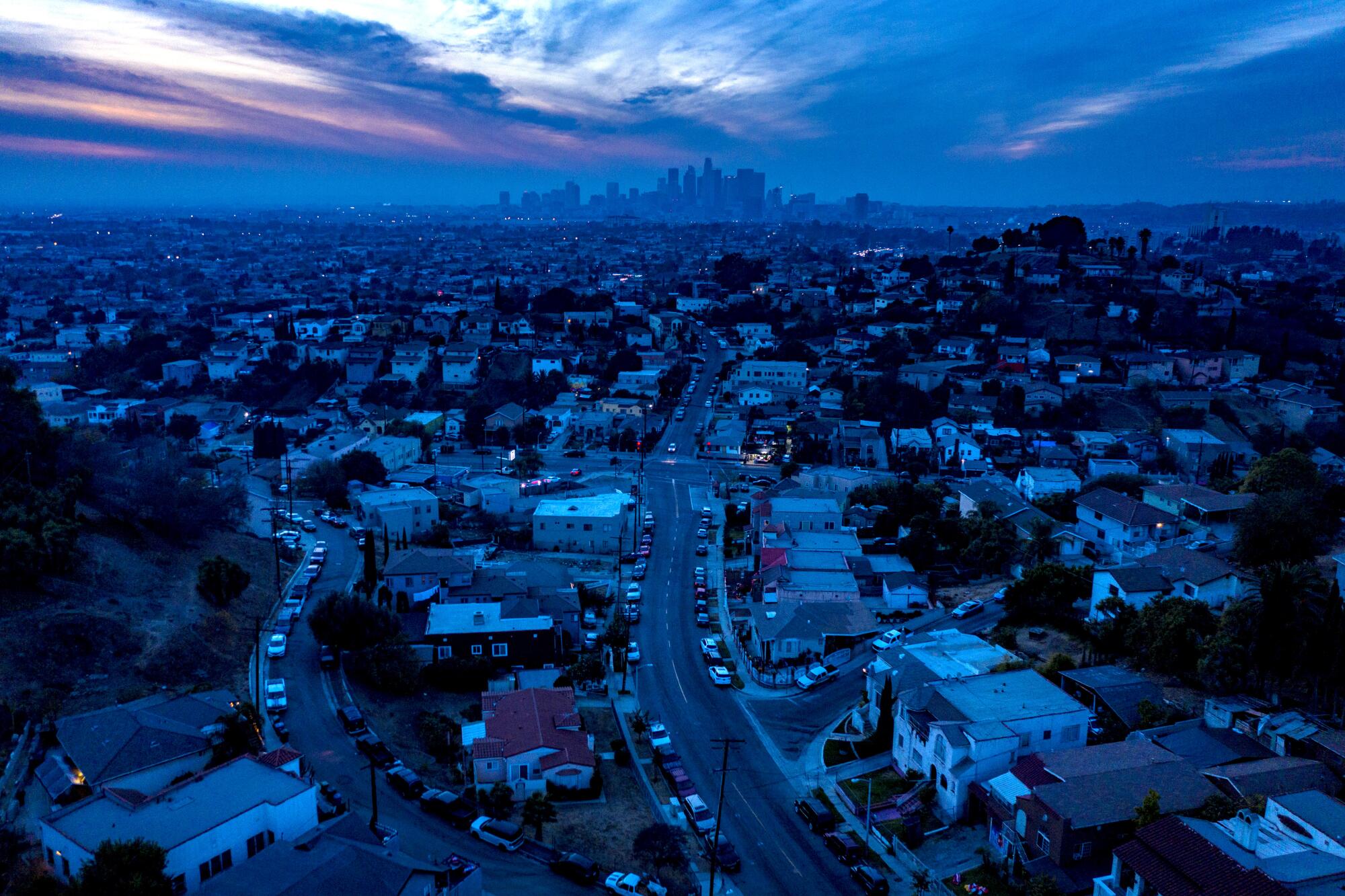
- Share via
It wasn’t yet noon and Magda Maldonado had already overseen her second funeral of the day.
The 58-year-old director at Continental Funeral Home in East L.A. had another service scheduled in four hours, but for a moment she sat down and closed her eyes. She thought about her grieving employees and how, in less than a week, four of them had lost loved ones to COVID-19.
“I don’t have words,” she said, holding back tears.
Seven minutes from the funeral home, in a storefront with signs boasting specials for quinceañeras and weddings, Elizabeth Garibay arranged rose buds and baby’s breath into funeral bouquets at J&I Florist — some of the only orders that haven’t dwindled during the pandemic.
North of the shop, in two separate homes, high school seniors Itzel Juárez and Karen Rodríguez stared into screens, turning in virtual assignments and researching the logistics of starting college in a pandemic.
Nearby on Hammel Street, outside Our Lady of Guadalupe Church, which now runs a food pantry, Paloma Yanez pulls up most mornings in her black subcompact vehicle. She picks up veggies and milk and something warm such as tamales or orange chicken — a welcome break from the sopa de fideo, a simple soup, that has sustained her family in recent months.
It has been 284 days since California first went into lockdown and here in East L.A. — a hot spot of infection — nearly every street corner holds some sign of the virus that has stolen more than 24,000 lives statewide, widened the wealth gap and rewired the rhythms of how we mourn, learn, work and worship.
You can see it in the “We cash all stimulus checks” banner hanging outside a payday-loan spot on Atlantic Boulevard and in the way three women outside a clinic along Cesar Chavez Avenue quietly reposition their bodies when someone nearby lets out a rattling cough. You can hear it, too, in the whining ambulance sirens barreling west toward White Memorial Hospital.
Across the predominantly Latino neighborhood, which spans seven square miles, more than 15,000 residents — 1 in every 10 people — have tested positive for COVID-19, marking the highest recorded tally of any region in the county and serving as a stark reminder of the virus’ unequal impact.
Across L.A. County, as in most every corner of the nation, Black and Latino people have been hospitalized and died at disproportionately high rates — a testament to how the jobs we work, the number of people we live with, the level of healthcare we receive and our access to generational wealth shape so much about our lives and even our longevity.
The funeral home
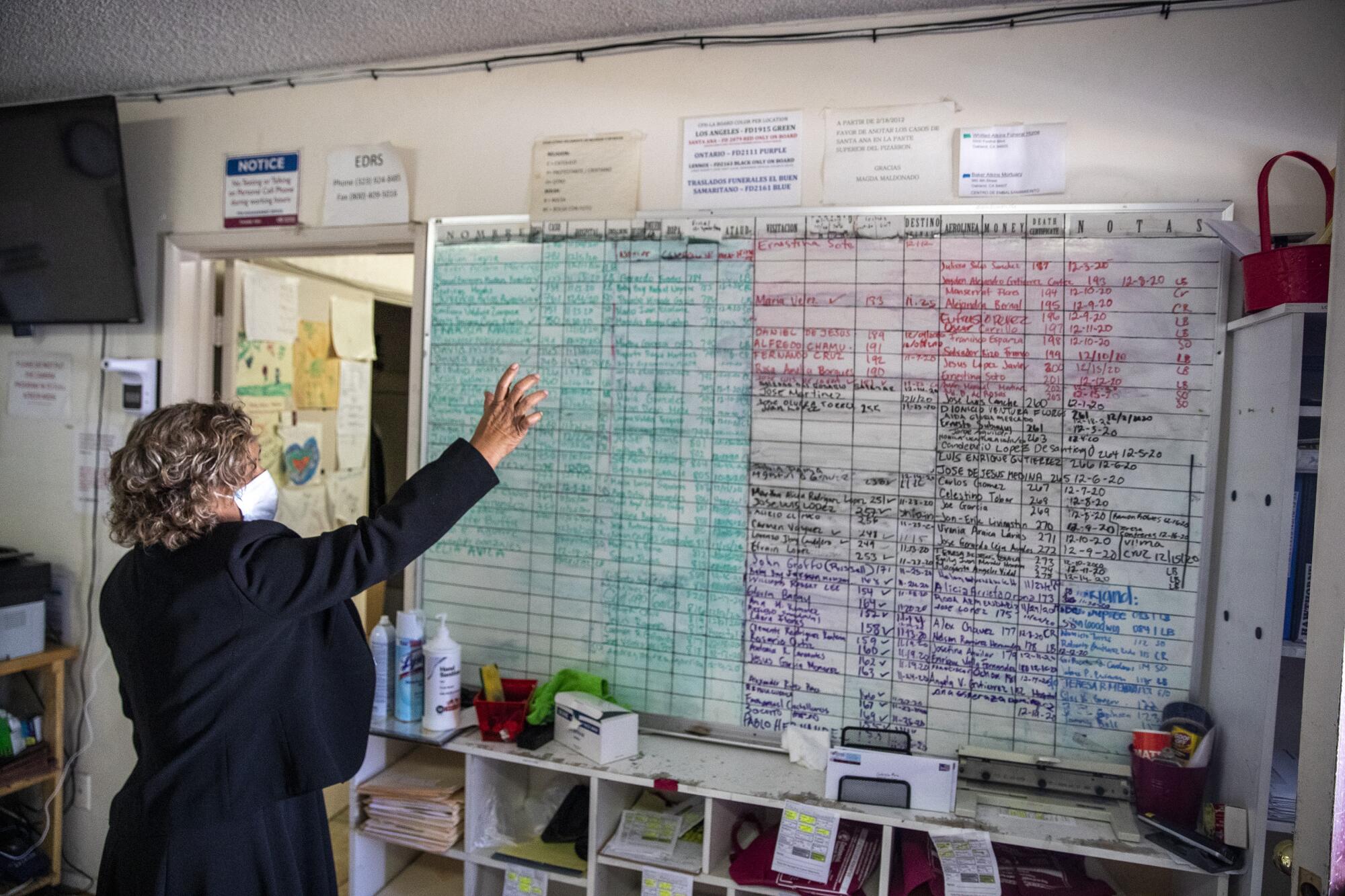
Beneath the bougainvillea archway outside Continental Funeral Home and past the table with hand sanitizer, there’s a back room with a whiteboard so wide it fills an entire wall.
There, on a recent Sunday afternoon, Maldonado stared at the 69 names written in green marker, signifying the upcoming funerals planned at the East L.A. location. Dozens of other names in purple, red and black accounted for services at locations in Ontario, Santa Ana and Hawthorne.
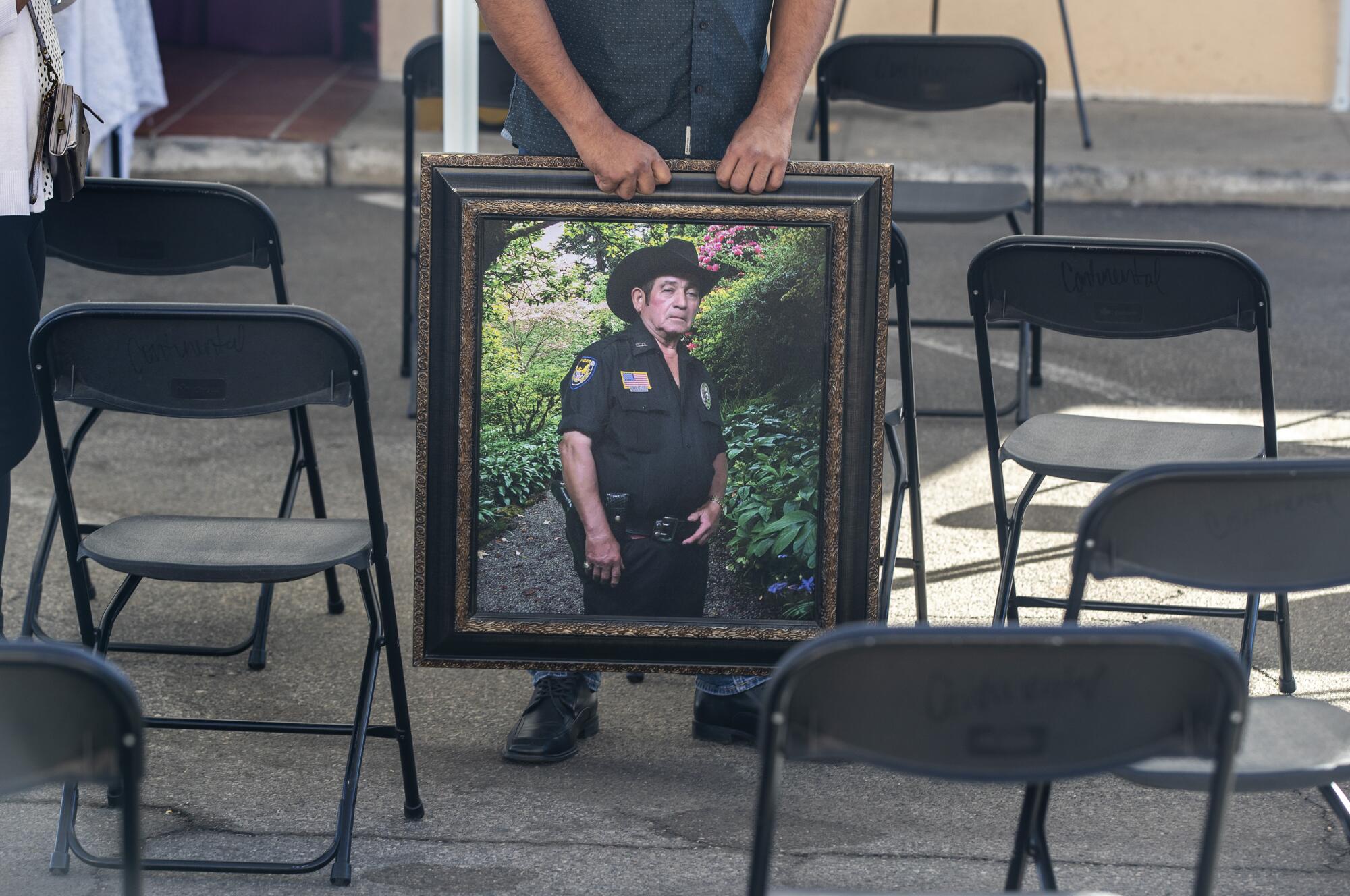
“How many cases do we have active right now?” Maldonado asked a longtime employee, who was sitting at his computer.
He squinted at the screen.
“176.”
She let out a slow sigh — that was more than quadruple their typical caseload, she said, and 80% of the current cases are COVID-19 deaths.
The funeral home’s Instagram feed, which was once populated with reassuring quotes about mourning, has now transformed into a steady stream of posts about COVID-19 safety protocols, including “#MásSeguroEnCasa,” a hashtag encouraging people to stay home.
Maldonado often thinks back to earlier in the pandemic when we knew less about how the virus spread and, as a precaution, the funeral home temporarily barred viewings. She can still see the expressions of anguish on people’s faces when they realized they’d never get to look into the casket and say goodbye.
“It was traumatizing.”
These days, her mind is almost always on her employees.
She was stunned recently when the funeral home’s cosmetologist, who prepares bodies before viewings, showed up for his 5 p.m. shift. Why didn’t you stay home, she asked, knowing his mother had just died of COVID-19. I feel my mother’s presence here, he told her.
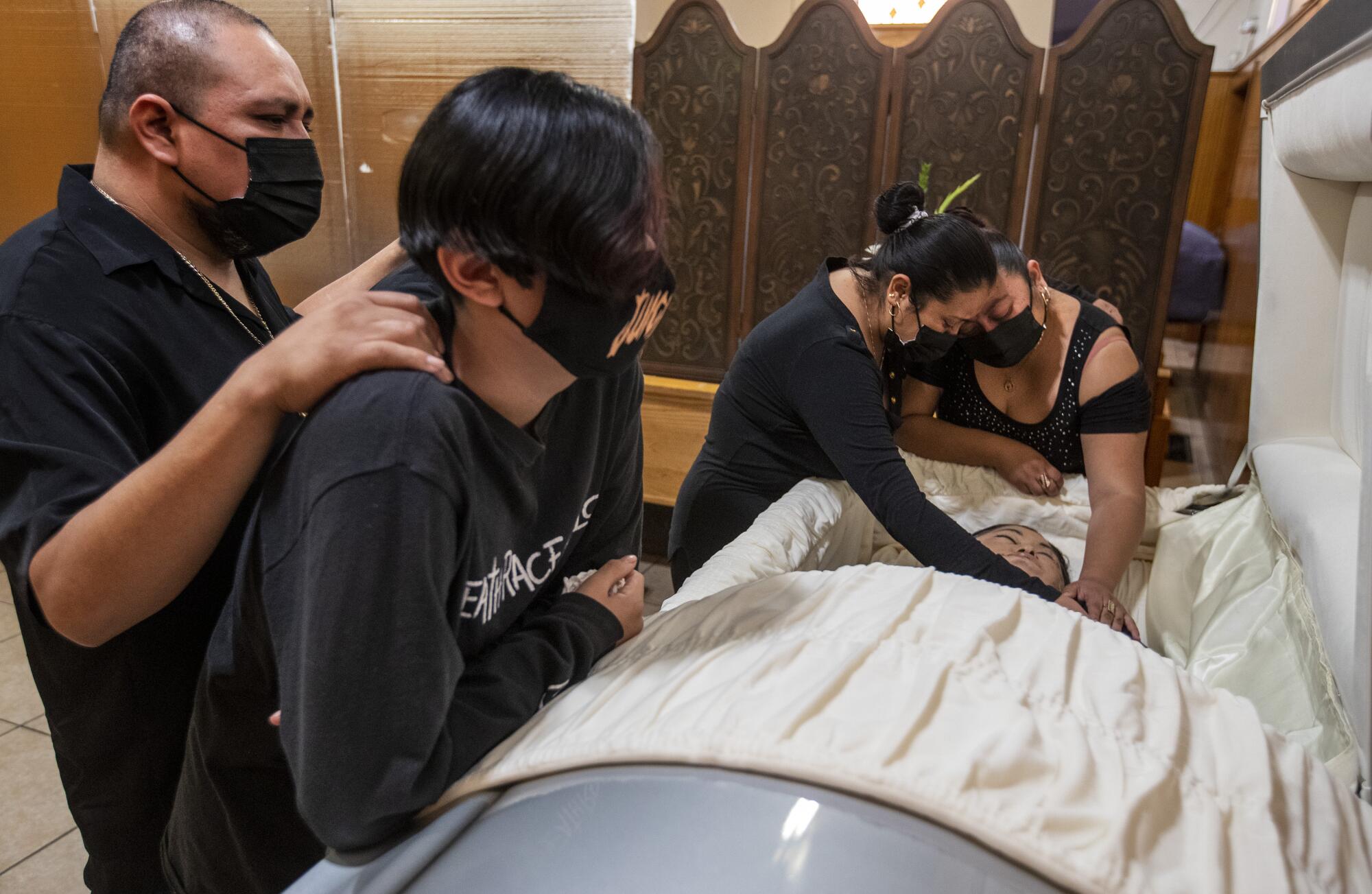
In the early days of the pandemic, Maria Sandoval, a counselor at the funeral home, lost her nephew, Valentin Martinez, the first sworn LAPD employee to die of complications from COVID-19. Less than two weeks ago, her father died after contracting the virus.
Her personal grief was now overlapping with the other suffering she’d witnessed since March. The 46-year-old counselor often thinks about the family who lost four relatives to the disease and the heartbreaking moment a young man realized he couldn’t afford to bury his mother at the cemetery she’d picked out.
She thinks of all the small services — limited to 35 people or so— which are now held under a white awning in the funeral home’s parking lot and how sometimes people use FaceTime for relatives who can’t attend. Because of all that she’s witnessed, it angers her deeply to hear people dismiss the virus’ severity.
“They just see a number or a statistic,” she said. “But I get to see the pain. I get to see the broken families.”
The florist
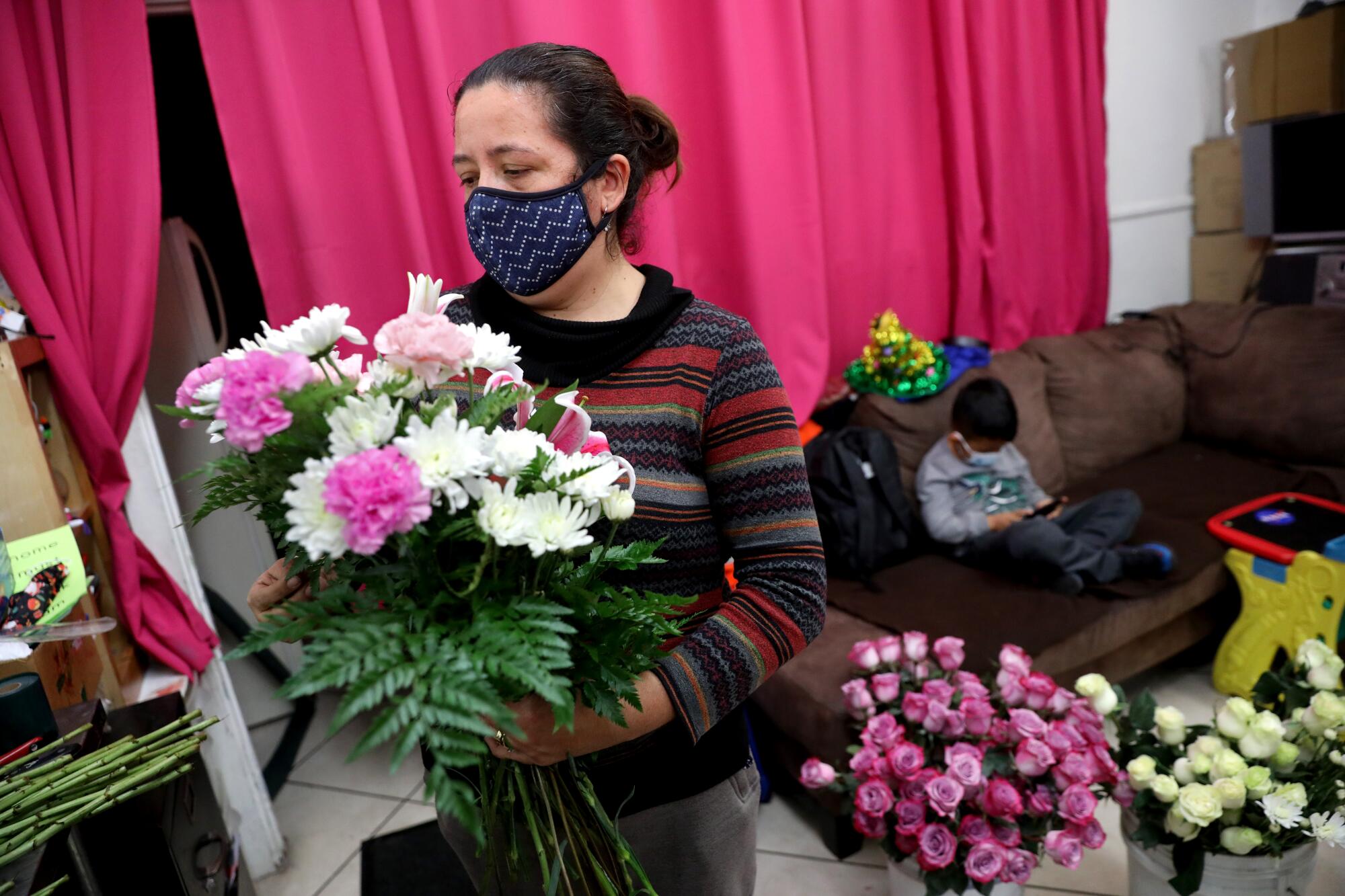
Garibay’s shifts at J&I Florist are long and quiet.
She and her three children arrive at the shop before 8 a.m., giving Jacqueline, 17, Iris, 12 and Nicolas, 6, a few minutes to log in before their online classes begin. On a recent weekday, as the children studied, Christmas music played in the background and Garibay focused on crafting a floral basket for a funeral.
She stuffed wet, foam bricks into the base of a white bucket and pierced them with the stems of three bright red gladiolus. She added white pom-poms, red carnations and green fern fronds, filling it until the rim of the bucket disappeared. She stepped back to examine her work.
“This my husband could do in like 10 minutes,” she said, chuckling. “I don’t work that fast yet.”
Still a novice, Garibay, 43, has begun to teach herself the basics of floristry out of necessity. Her husband, Celso Pineda, was deported to Mexico, leaving her to run the business alone.
Both of Pineda’s parents died within two years of bringing him to the U.S. at age 11, he said, and he quit high school at 17 to start working at a flower shop. Seven years later, while delivering an arrangement, he met his wife. They built a life together, dedicated to their children and their Catholic faith.
Pineda worked as the lead florist at a shop in Montebello for more than a decade, until his boss retired. He thought about taking a job at a shop in Beverly Hills, but he worried that the long commute from East L.A. would keep him from his wife and children.
He soon spotted a shop a block from Beth Israel Cemetery with a “For Rent” sign and before long he’d opened J&I Florist, named for his daughters’ initials. The couple’s son, Nicolas, was born two years later, and Pineda felt reaffirmed in his decision to pick a shop close to home.
Over time, however, Pineda struggled to control his alcoholism, he said. Between 2001 and 2010, he was arrested on three occasions related to drunk driving. The crimes landed him in deportation proceedings, but immigration court hearings and appeals bought him many years.
“Unfortunately,” he said, “over the course of my life I committed certain errors that I should not have.”
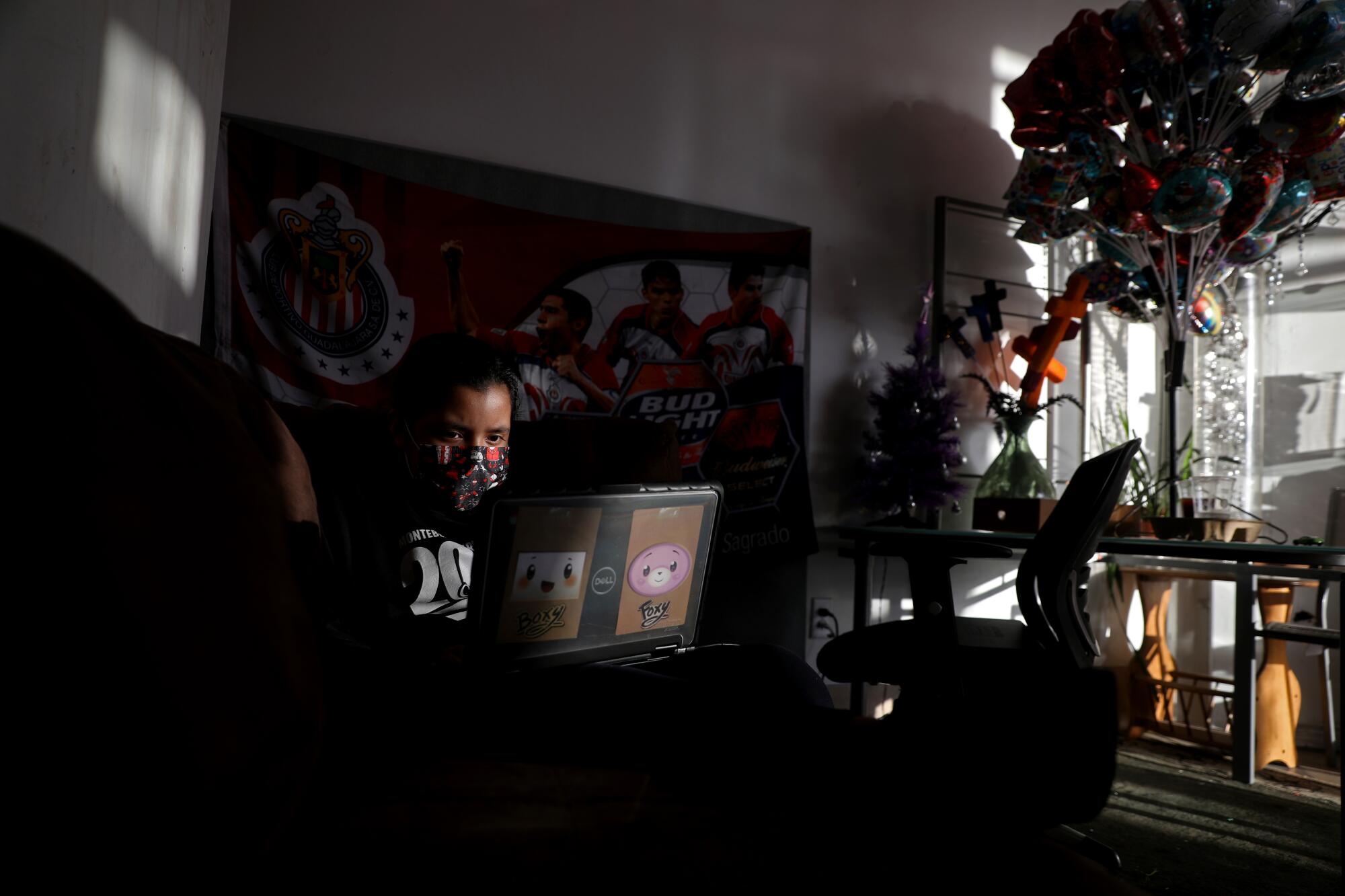
During a check-in visit with immigration authorities in December 2019, after his final appeal was denied, Pineda was detained by Immigration and Customs Enforcement and deported to Mexico. He opened a shop in Mazatlán, but realized he was hemorrhaging so much money that it made more sense to join an established florist.
He now lives in a small town in Jalisco, a five-hour drive down the coast from Puerto Vallarta, in a two-bedroom home he bought four years ago for $26,000. After decades of watching the immigration system separate families, he said, he decided it made sense to have a backup plan.
Back in East L.A., Garibay knew she couldn’t afford rent at both their home and the flower shop, so she and her three children moved into a single room at a friend’s home. On the hardest days, she pleaded to God for strength and as she gained confidence in her floral skills, she started sending her husband photos of her arrangements.
“Está chingón!” he’d tell her. It looks badass.
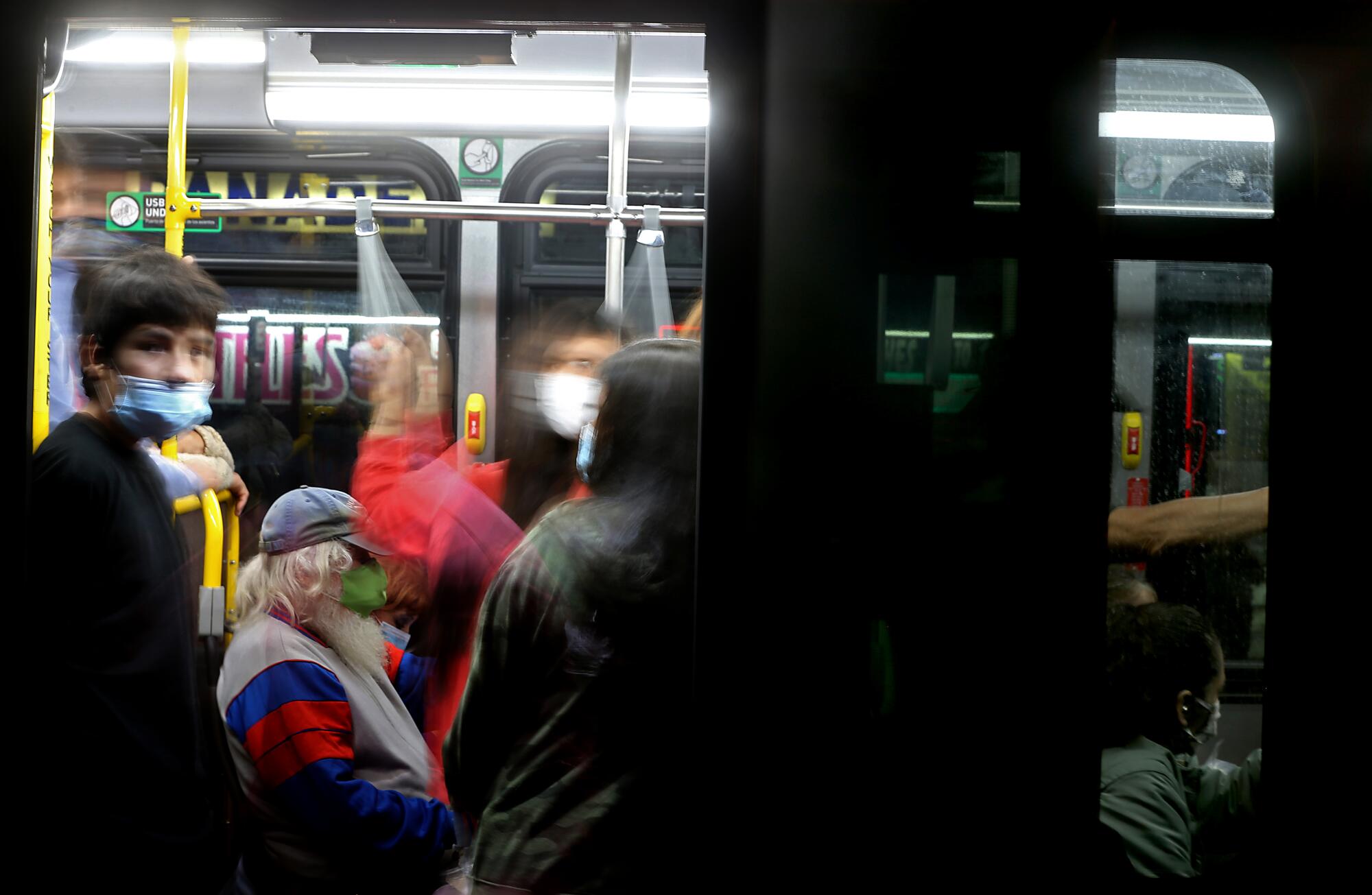
Then, in March, the flower shop was forced to shut down and since reopening in May, sales have fallen by more than half. Garibay added a plastic barrier around the cash register. Nearby, a wall decal reads “Choose joy” and a sign on the counter features a prayer to St. Martin of Tours: “God bless my business, my work and my clients.”
Customers occasionally try to barter for lower prices, saying they could find something cheaper in the downtown L.A. flower district.
“Where’s Celso?” they sometimes ask.
Unsure of what to say, Garibay simply says that he’s not around.
Pineda hopes his family will join him in Jalisco after the school year ends, but Garibay is worried about their children. Nicolas is young enough to adjust, she thinks, but she wonders how Iris, who is shy and struggles with Spanish, would adapt.
“Because of them, I am here,” Garibay said. “But my husband is there. I cannot divide myself in two.”
Their eldest, Jacqueline, has applied to four schools in the California State University system with dreams of becoming a crime scene photographer. For a long time, she told herself that if her father ever got deported, they’d all move to Mexico to be with him.
Now she’s not as sure.
The students
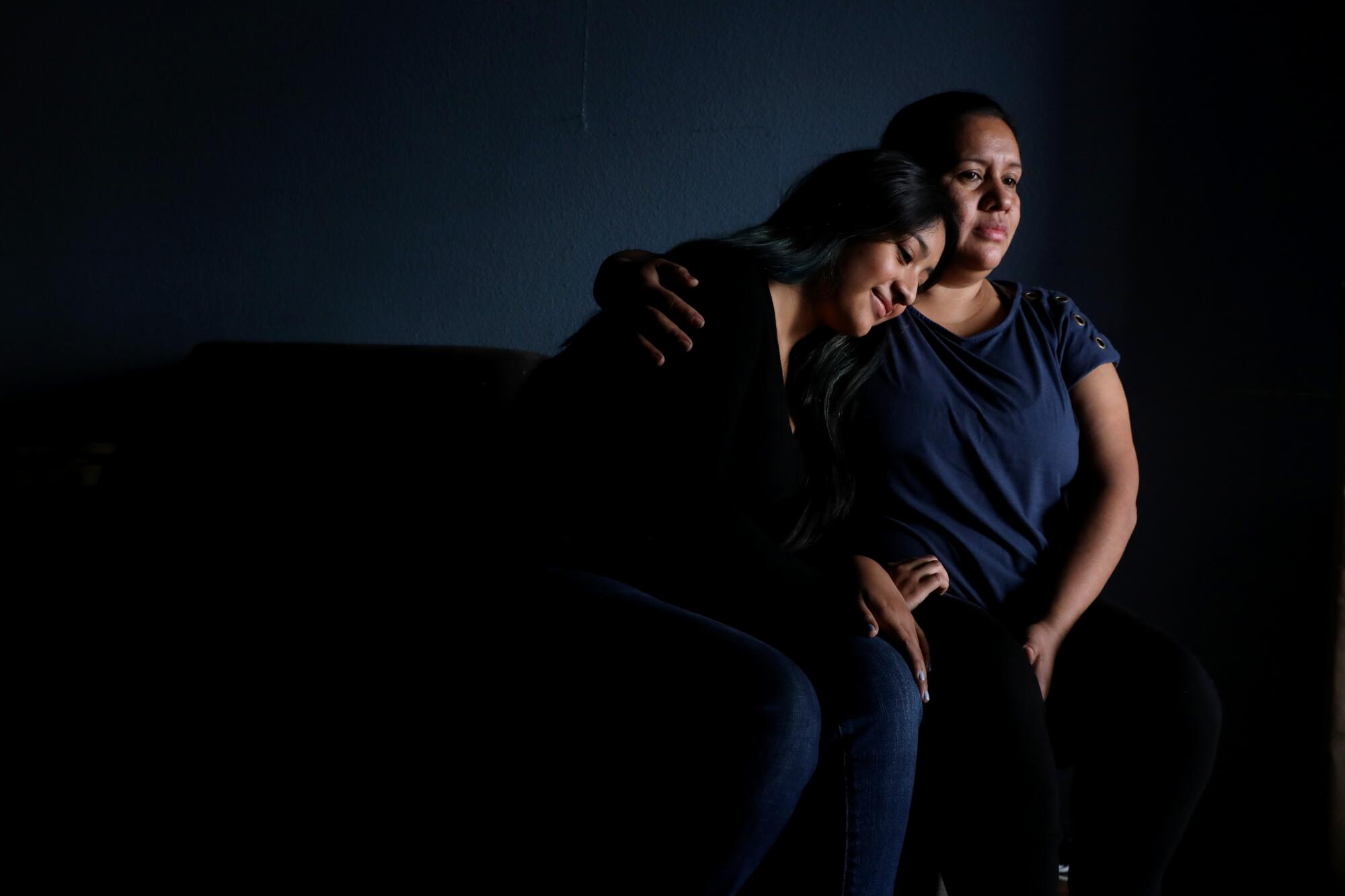
On the first day of December, Itzel, a senior at Collegiate Charter High School, spent much of her day refreshing Instagram account.
She was waiting for an update from QuestBridge — a national nonprofit that connects students from low-income backgrounds with top universities — about the status of her application. Groggy and anxious after a sleepless night, Itzel, 17, wandered into her mother’s bedroom and hit refresh again. This time a new post popped up, saying the decisions were in.
She took a deep breath and logged into the nonprofit’s website. Then, she screamed. Her sisters rushed in and their mother ran out of the shower to join them as they jumped up and down. Still dripping with water, the proud mother began dialing everyone she knew to tell them the news: Her daughter had gotten a full ride to Stanford.
Ten days later, Rodríguez, a senior at the Humanitas Academy of Art and Technology, got identical news and broke down in tears.
A full ride to Stanford feels good any year, but getting in now — amid a global pandemic that has decimated college enrollment numbers, particularly in poorer school districts — felt especially momentous. It was testament, both girls said, to their wide support systems.
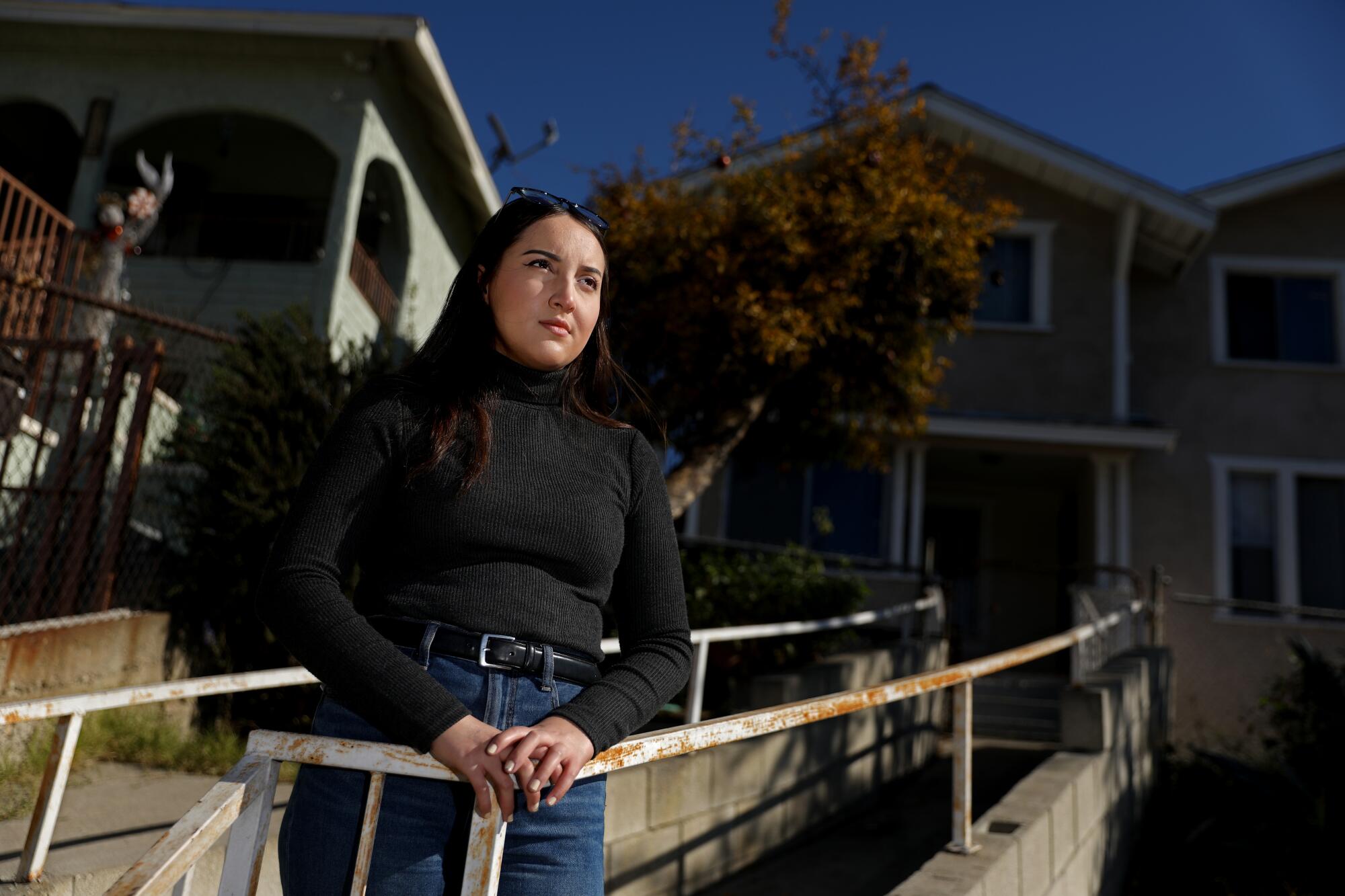
Rodríguez, 18, thought of the friend who had texted her, “I’ll be praying for you,” the night before she received her decision, and Itzel thought of the many educators who had checked in on her after her aunt died of cancer earlier this year.
Itzel thought, in particular, of Celeste Davidson, an interventionist who met her one day in detention and committed to mentoring her. The weekend Itzel’s application was due, Davidson stayed up past midnight, refusing to go to bed until she knew the application had been submitted.
But her most steadfast champion, Itzel said, has always been her mother, Idalit González, who was brought to the U.S. from Mexico at age 9.
Because she never had the opportunity to study at a university, González said, she has always stressed the importance of manifesting their educational goals to her daughters.
“A plan,” she often told them, “not just a dream.”
For González, who works the night shift at UPS, loading boxes onto delivery trucks, her daughter’s admission to Stanford was a bright spot in an otherwise bleak year.
In October, González’s in-laws contracted COVID-19 and became gravely ill. Her partner couldn’t travel, so he asked her to make the trip to the Mexican state of Puebla to ensure that his mother, who was hospitalized, received proper medical attention.
González, who hadn’t returned to Mexico since leaving as a young girl, was terrified of getting infected, but ultimately made the trek. While there, in her quest to secure an oxygen tank for her mother-in-law, she got exposed to the virus. Back in Los Angeles, she tested positive and had to miss work for several weeks, devastating the family’s finances.
Although the Stanford news buoyed her spirits, the idea of her daughter leaving home pains her. She knows she won’t be there to soothe Itzel if she gets sick and she worries about her daughter’s safety as a student of color on campus.
“I’m not ready. I’ll probably never be ready,” she said. “But this is her time. I have to let her go.”
The family
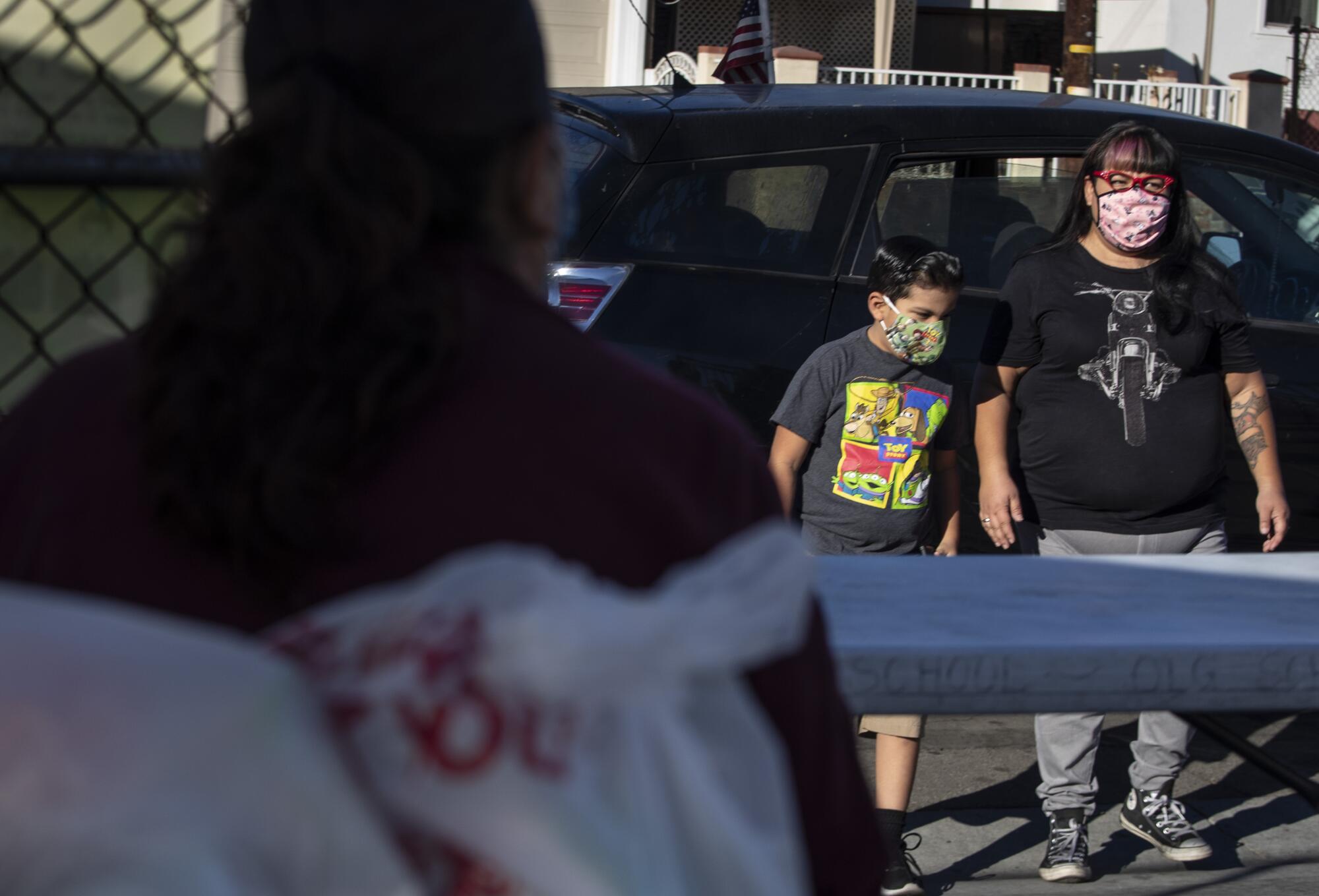
You can almost hear the despair in Yanez’s voice as she reflects on everything the pandemic has taken from her family.
Her husband, Benny, a forklift driver, has arthritis in both knees but returned to work from disability leave in September, eager for a full paycheck. Almost immediately, his hours were cut.
Her 7-year-old son, Benny Jr., an introvert, had finally started to open up, making a core group of friends at Our Lady of Guadalupe Elementary School on Hazard Avenue. But when classes moved online, the 43-year-old watched as her second-grader zoned out on Zoom, constantly talking about how much he missed his friends.
And, in an instant, the outings she had once relished, such as picking up groceries for her family, felt exceedingly risky, given her health history with diabetes. She yearned for a home with a yard or some green space — somewhere Benny Jr. could run around — but all they could afford to rent right now was the top story of a home, which they share with an elderly couple.
As an escape from their tight quarters, Yanez and her son sometimes drive to Obregon Park and run around in the grass together. When it’s not locked, her son frolics in the playground.
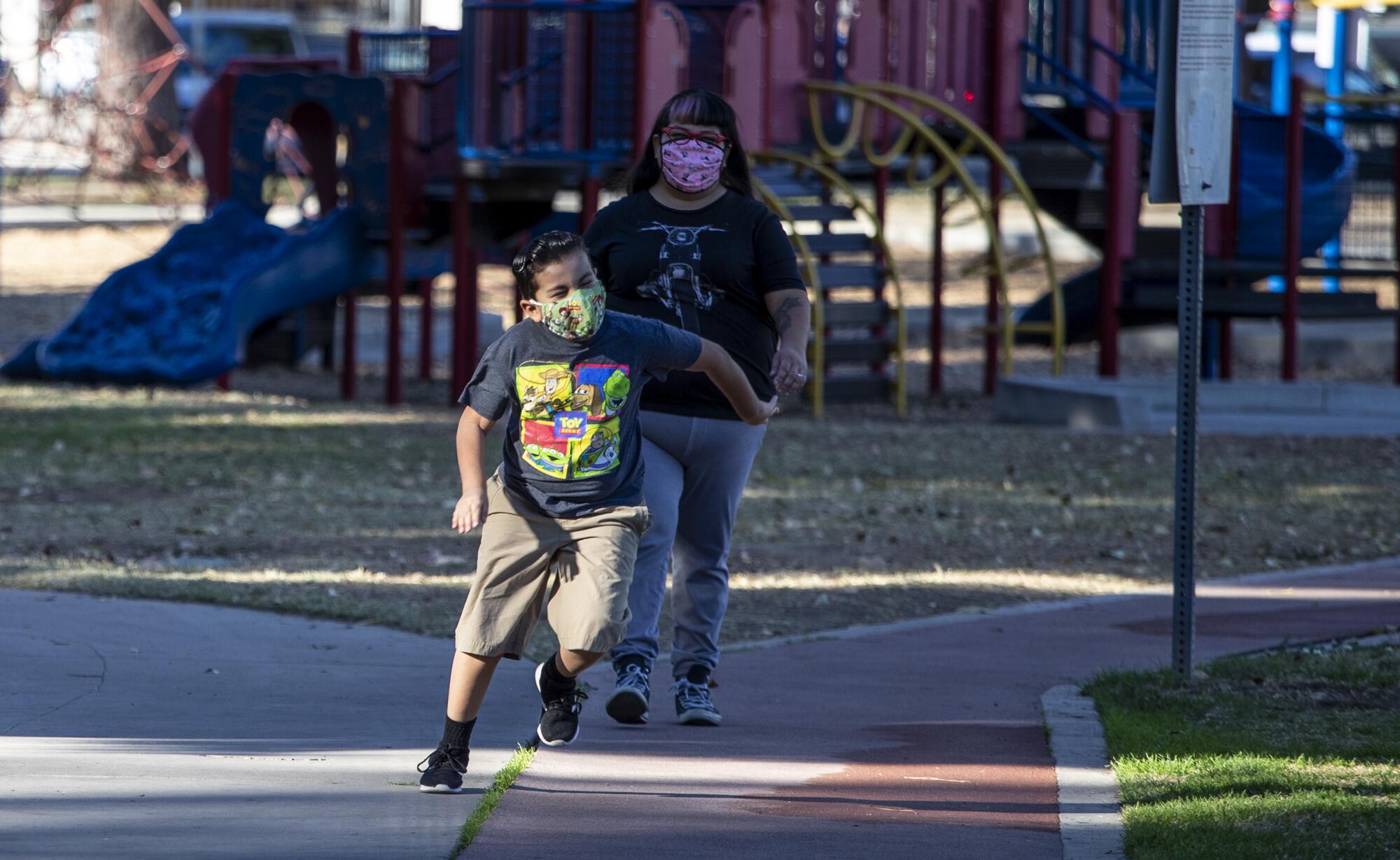
“It’s just been a struggle, you know?” Yanez says, fighting back tears. “We’re behind on most bills. I can’t work because of my illnesses and we’re just barely getting by. It’s tough, but we have faith things will get better.”
And so far, she said, her faith — and her parish — have helped sustain her.
Her son’s school, located in the parish, loaned Benny Jr. and about 50 other students iPads with built-in hot spots. The school also awarded the family a scholarship to cover a third of the $3,150 annual tuition. She and her husband considered the possibility of putting Benny Jr. in a public school, she said, but want to do everything they can to keep him where he is.
She has been impressed and humbled by the efforts of her son’s teachers — Laura Flores, Jessica Salazar and Angelica Carrillo — who have worked hard to keep him engaged, while also maintaining a challenging curriculum.
And almost every weekday morning recently, Yanez has pulled up to the school’s food pantry, which is funded by the federal government’s Seamless Summer Option program. It is on hiatus for the holidays, but during the busiest day this summer, Principal Nancy Figueroa said about 1,900 meals were handed out.
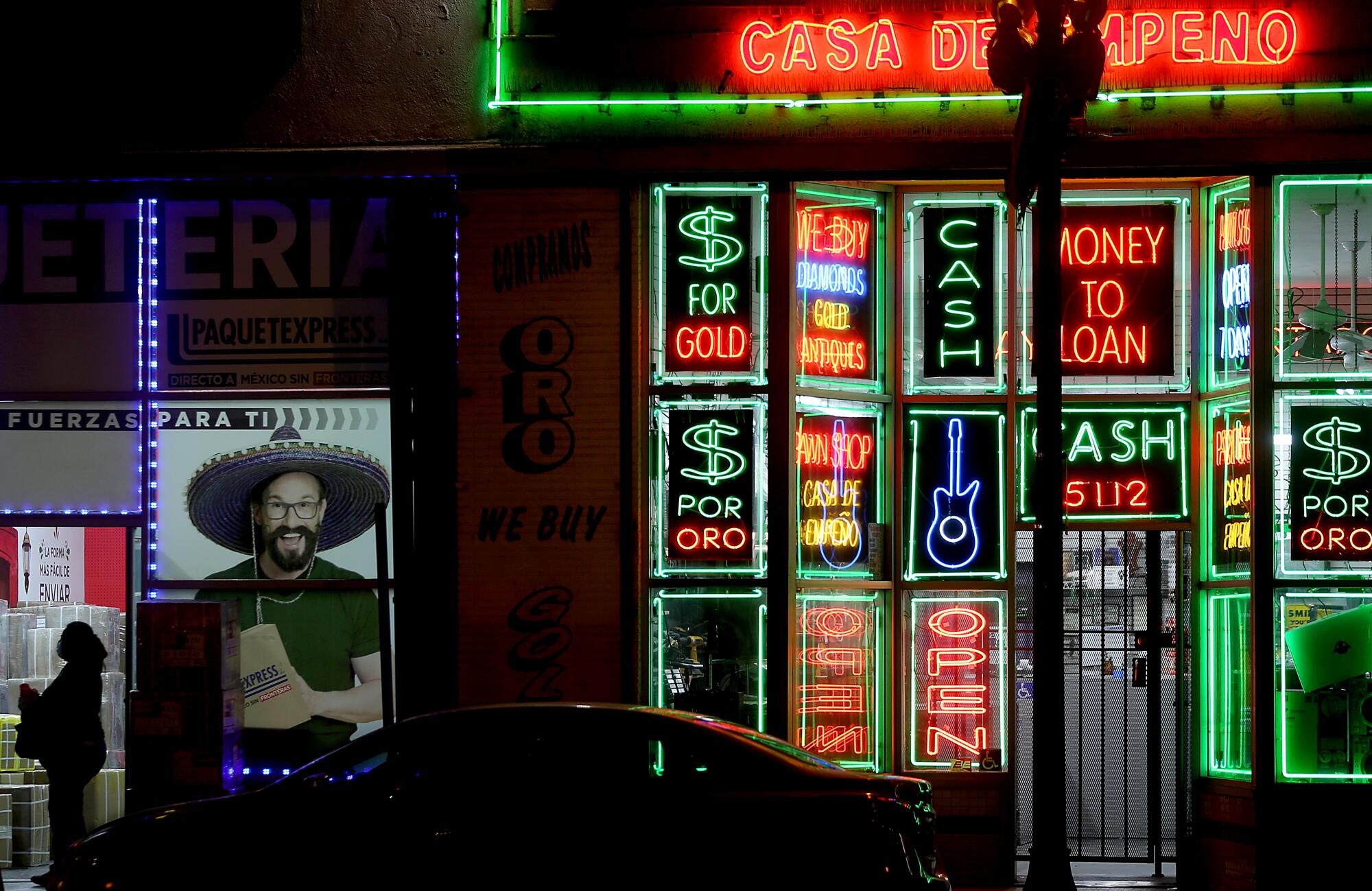
The parish itself is struggling as well.
School enrollment is down 17% and the church is operating on about half the revenue it did last year — a drop due, in part, to the cancellation of a four-day fiesta that typically brings in about $60,000.
“It’s hard to lose that,” said Jose Ruiz, the parish’s business manager. Still, he said, they’ve managed to give about $7,000 in small, one-time grants, which families have used to cover the cost of rent, funerals or medical bills.
While the church began offering small, socially distanced Masses again in mid-July, most parishioners, including the Yanez family, still prefer to watch virtually from home. She hasn’t missed a Sunday yet, Yanez said.
Over the last several months, Father Marco Solis said, he has watched in admiration as his congregation has united amid profound suffering and fear. We are called to serve one another, he said, to lighten another’s loads.
And these days, he said, he sees that happening all around him.
More to Read
Sign up for Essential California
The most important California stories and recommendations in your inbox every morning.
You may occasionally receive promotional content from the Los Angeles Times.
